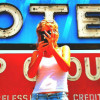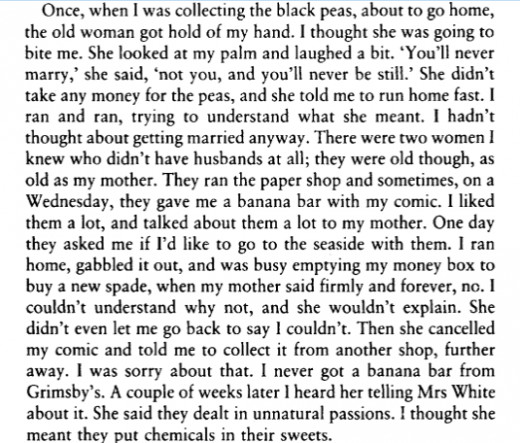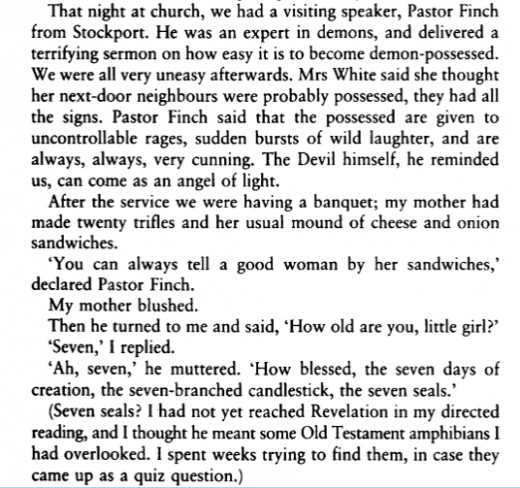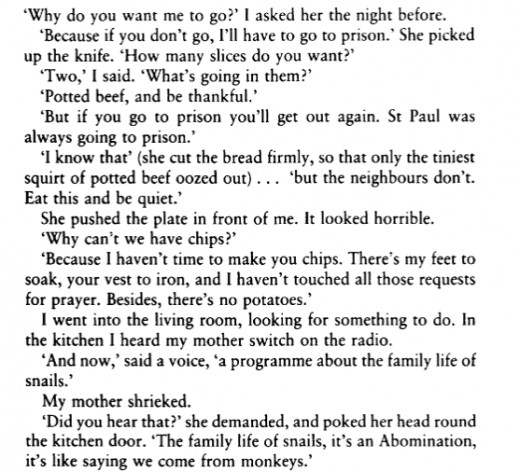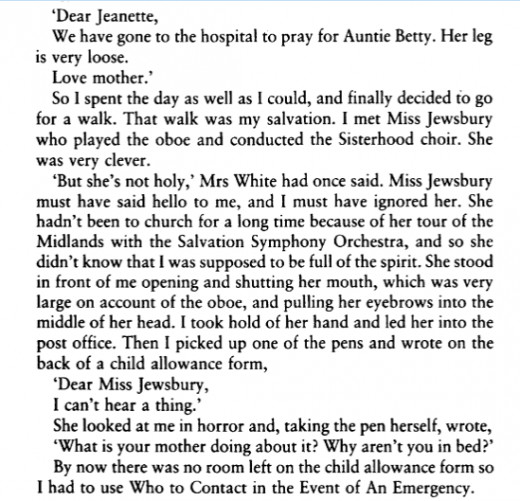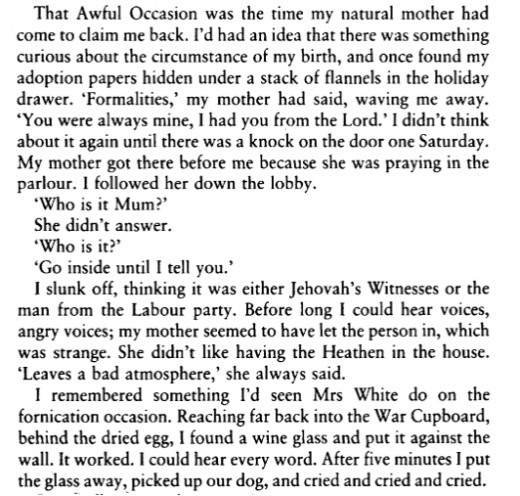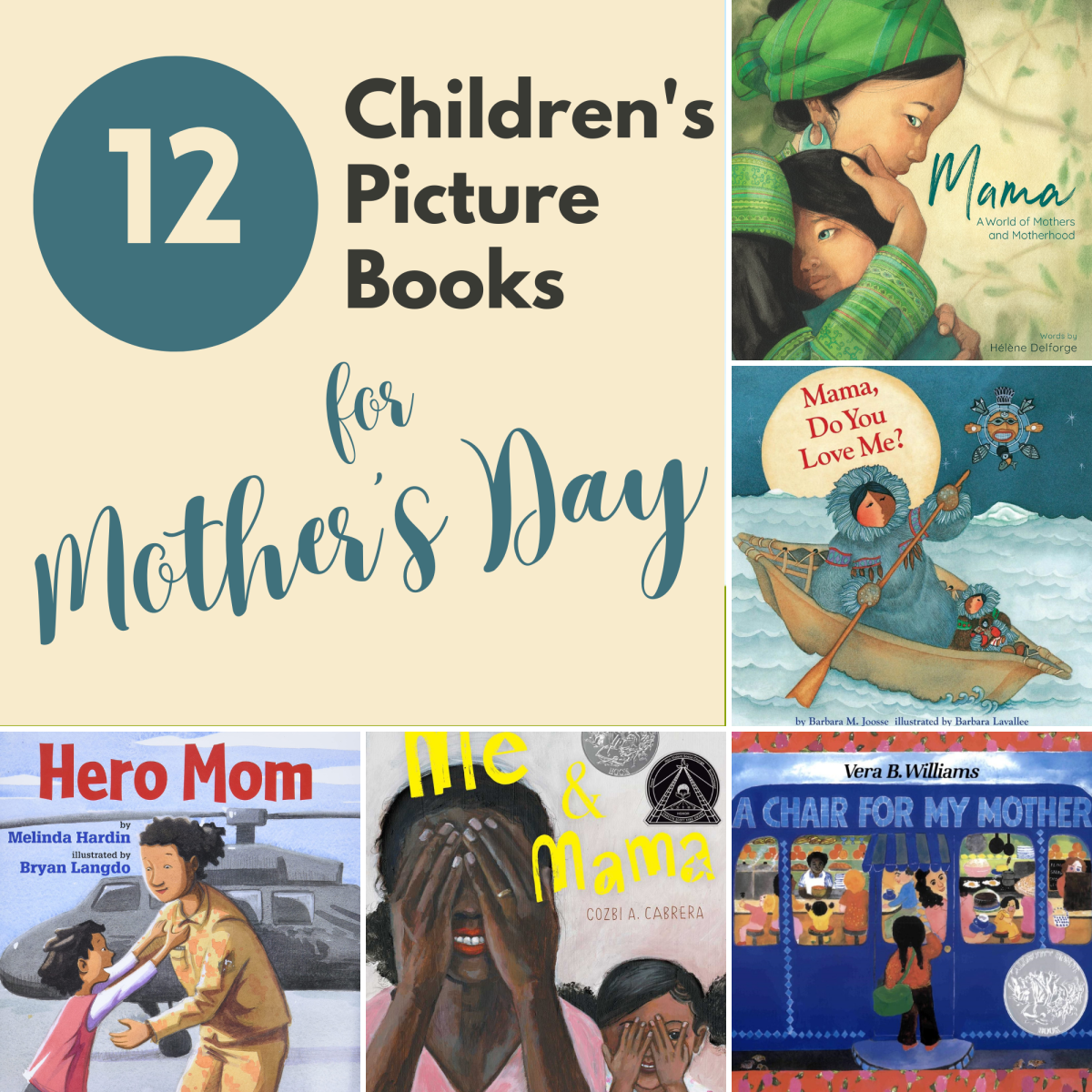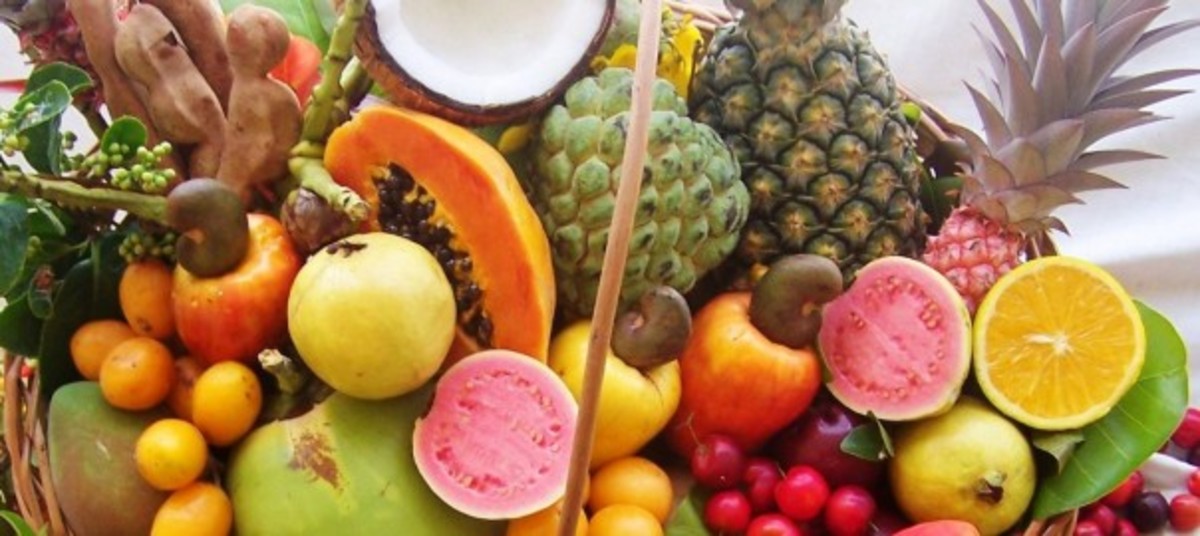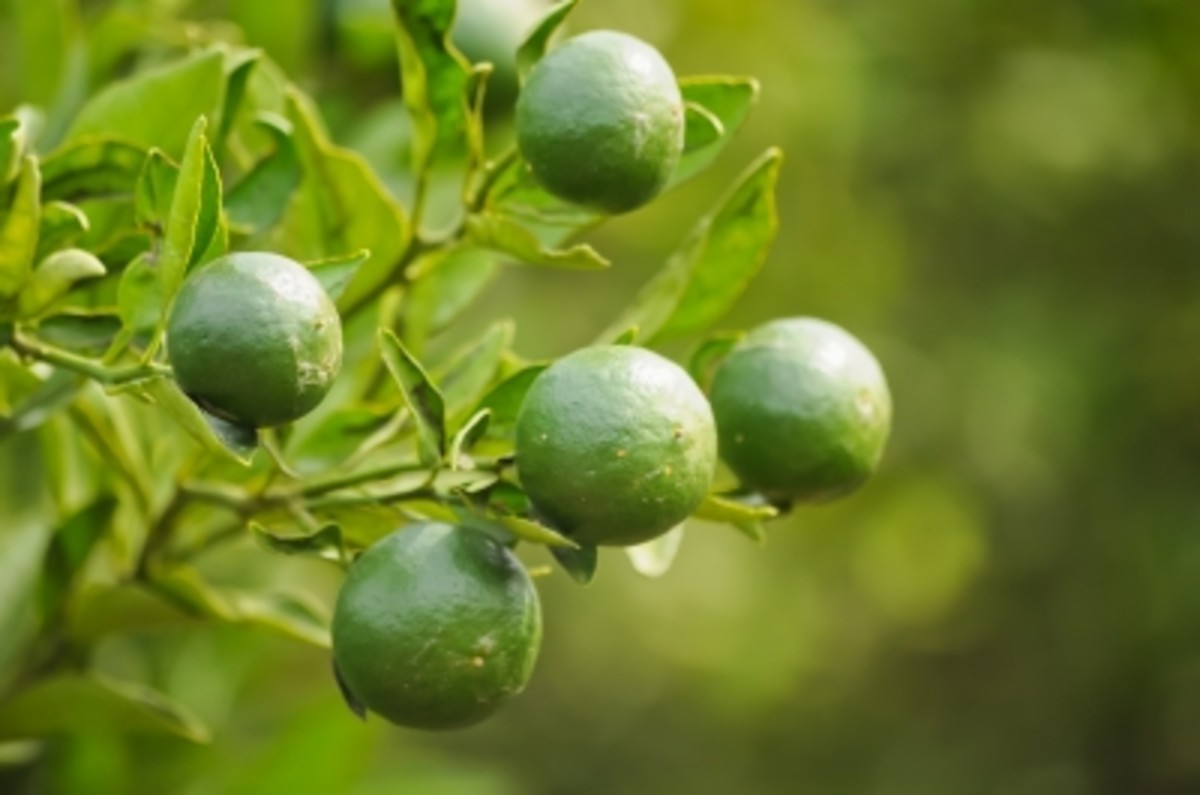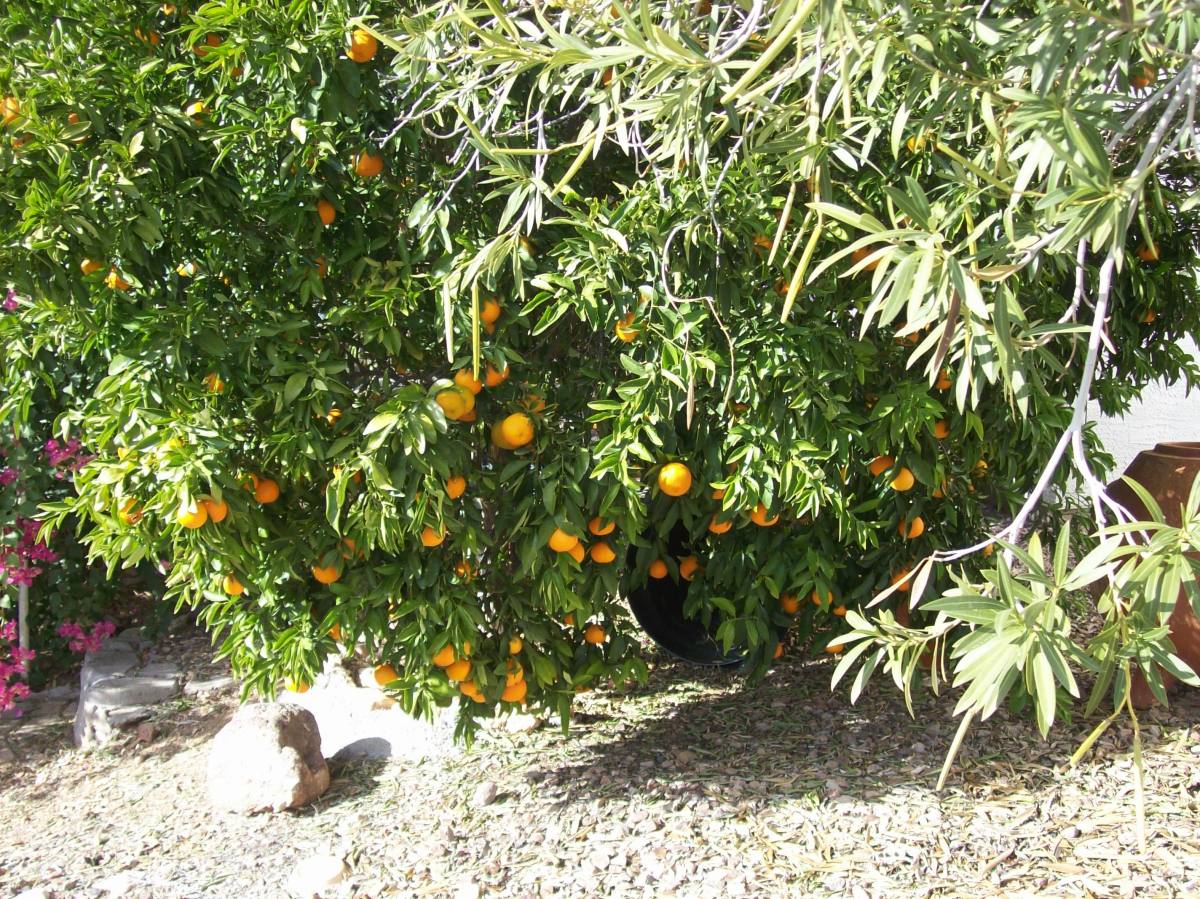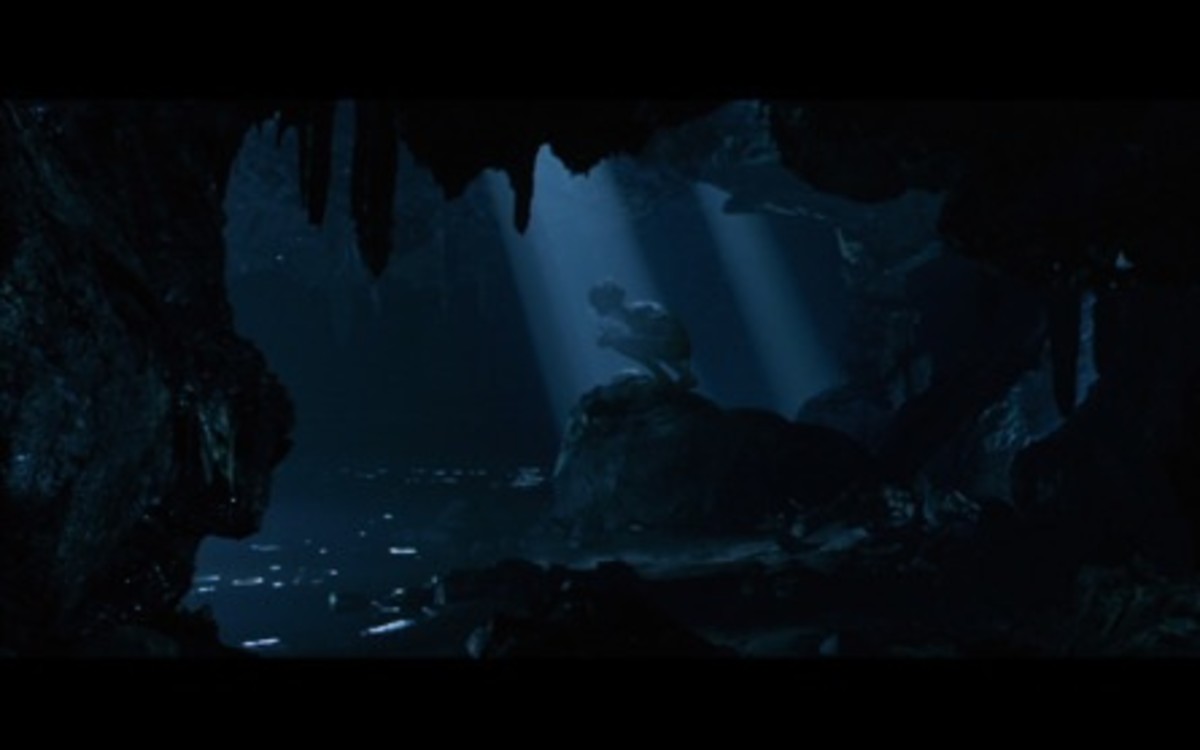Oranges Are Not the Only Fruit: Review
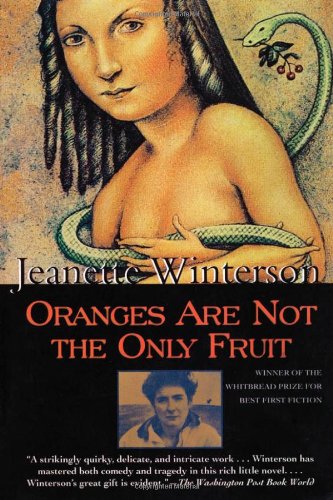
Oranges Are Not The Only Fruit: Jeanette Winterson
About two years before I moved from the United Kingdom to the States, I watched the first episode of a TV mini-series based heavily on this novel. Because I couldn't wait for the next episode, I had to buy the book.
Semi-autobiography of a north England upbringing
Based to some extent on her own early years, the author describes the childhood and teenage years of Jess; an adopted girl brought up by a zealously religious mother.
Conformity and relationships
Jess will only conform to her mother's wishes when she is a child, although even when young she is happy to question her mother's remarks. But as she gets older, probably in part thanks to her parents' cold and unemotional relationship, she finds that she is only attracted to other girls. Of course, her mother and her colleagues-in-faith see this as demonic possession.
Are oranges the only fruit?
Rather like The Godfather, oranges are frequently mentioned in this book. I know from my own post-war upbringing that mothers in those days almost revered the orange - a fruit that was never seen in the war year and during post-war rationing. Mother rather pompously believes that oranges are the only fruit. The title of the book demonstrates that Jess sees this dogmatic pronouncement as typifying her mother's rigidity of attitude. By later becoming a lesbian, she is showing that there is more than approach and opinion to everything and that, in fact, oranges aren't the only fruit.
Do watch the video below to sample the characters
I have often wondered if I would have enjoyed this book as much had I not seen the characterization on the television. It's hard to tell in retrospect.
Hypocrisy
Right at the beginning of the book, we see the rigidity of the mother's attitude. She hates her next door neighbors with vengeance -there is no 'love thy neighbor' attitude. And although I can't speak for present day, I can vouch for the fact that northern England really did have characters like Jess' mother, the preacher and the crowd in the congregation - I knew many of them.
Get a feel for the book
It's hard to describe the humour in this book, especially given the subject matter. That's why, if you scroll down, you'll see some sample pages that can explain so much better than I do.
See a clip from the TV series
Jess' mother has taken her to the coast to spread the word of the Lord. As they leave, the mother writes a note to her husband explaining their absence:
Dear William, I am busy with the Lord in Morecombe.
I fell truly in love with this book thanks to Mother's comment at the end of this clip. Jess has hyacinth bulbs from school (or 'the devil' as her mother calls the school, 'it is a breeding ground') and is told to grow them in a pot in the airing cupboard. (I remember doing that when I was about five or six).
But, as young Jess remarks, they don't have an airing cupboard.
Her mother's reply is so typical of her personality and so typical of the humour of the book:
"You don't need an airing cupboard when you've got Jesus."
Note: This series is not available on Amazon but you can buy it online from the BBC. They ship worldwide with reasonable shipping fees. Click here.
If such religious fanaticism is new to you, I can assure you that this is true to life for northern England in those times. The area was staunchly Methodist.
Photo Gallery
Click thumbnail to view full-size




Books written by authors from the north of England tend to have elements in common. Here are some further examples that I enjoyed enormously.


© 2013 Jackie Jackson
